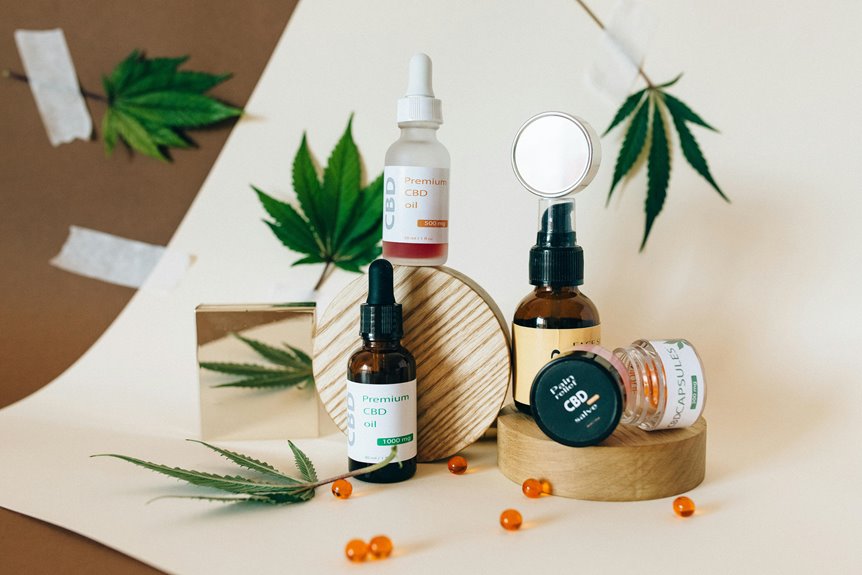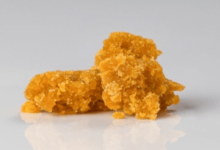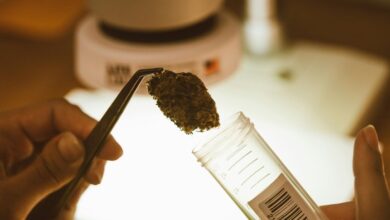
What Is CBD?
CBD, or cannabidiol, is a compound from the cannabis plant known for its non-psychoactive properties. Unlike THC, CBD does not produce a high, making it a focus of interest for those seeking therapeutic benefits. Its legality varies across regions, leading to some confusion about its usage. Understanding how CBD interacts with the body may shed light on its potential applications in health and wellness. What are the implications of these interactions?
The Basics of CBD: Understanding Cannabidiol
Cannabidiol, commonly known as CBD, is a non-psychoactive compound derived from the cannabis plant. Its legality varies globally, often leading to cbd misconceptions regarding its use.
Many individuals mistakenly equate CBD with THC, the psychoactive component. Understanding CBD's legal status and distinguishing it from other cannabinoids allows consumers to make informed choices about its potential benefits without the stigma associated with cannabis.
How CBD Works in the Body
As individuals explore the potential benefits of CBD, understanding how it interacts with the body is essential.
CBD primarily works by engaging with cannabinoid receptors within the endocannabinoid system. This system plays a crucial role in maintaining homeostasis.
Potential Benefits of CBD
While ongoing research continues to unveil the myriad uses of CBD, its potential benefits span various aspects of health and wellness.
Users report improvements in anxiety, pain management, and sleep quality.
However, individuals must remain aware of legal considerations, as regulations surrounding CBD vary by region.
Understanding these health benefits alongside legal frameworks is essential for informed and responsible use of CBD products.
Different Forms of CBD Products
A variety of CBD products are available on the market, catering to diverse preferences and needs.
Consumers can choose from oil tinctures for quick absorption, edible gummies for a tasty option, and topical creams for localized relief.
Additionally, vape cartridges offer fast-acting effects, while capsule supplements provide a measured dose.
Infused beverages present another enjoyable way to integrate CBD into daily routines.
Conclusion
In the realm of wellness, CBD emerges as a soothing balm, offering a glimmer of hope for those grappling with anxiety, pain, and sleep disturbances. As science continues to unravel its mysteries, this non-psychoactive compound stands at the crossroads of natural remedy and therapeutic potential. With diverse forms available, CBD invites exploration, beckoning individuals to embark on a journey toward balance and relief in an increasingly chaotic world. Its promise lies not just in healing, but in harmony.






